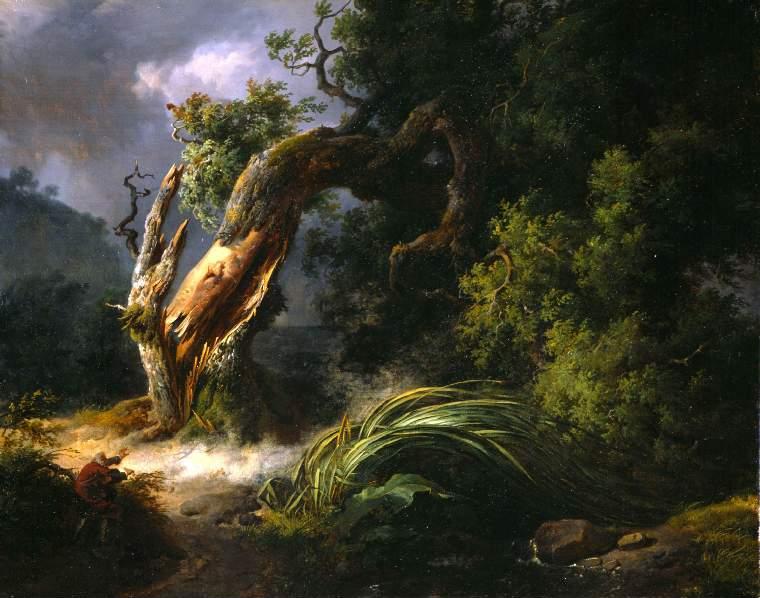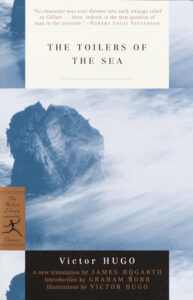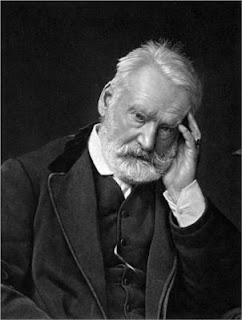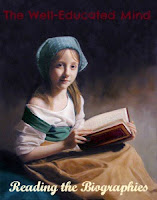Finally, this is the last of my postings on Montaigne’s selected essays, which I started at the beginning of my WEM Project. I’ve enjoyed his unique character and passionate zest for all his topics that I plan to try to read through all his essays at some point. Montaigne has the ability to mesmerize you, yet I could sometimes find myself both agreeing and disagreeing with him in the same sentence. His approach is so singularly charming, a mixing of intellect with storytelling, which make (most of) his essays a joy to read.
On Freedom of Conscience: Quite an unusual essay. Montaigne examines Roman Emperor, Julian the Apostate, so called for having abandoned Catholicism. Nevertheless, Julian had a very tolerant view of religion and allowed all religions equal status. Montaigne appears suspicious of these motives, claiming that this permissive action can have two outcomes:
1) “to give a loose rein to the factions to hold to their opinions, is to sow and scatter division, and almost to lend a hand to increase it, there being no barrier and restraint of the laws to check and impede its course.”
2) “to give the factions the reins to hold to their beliefs is to render them soft and lax through ease and facility, and to blunt the edge which is sharpened by rarity, novelty and difficulty.”
Again, Montaigne shows the reader his ingenuity at being able to see more than one possibility.
We Can Savour Nothing Pure: This is a somewhat melancholy essay. Montaigne reveals that because of the “feebleness of our condition”, we can experience nothing in its natural purity and that all the pleasures or goods that we enjoy are “compounded with some evil or injury.” Every virtue is tainted with vice, every justice with injustice.
I love his example from Socrates: when Socrates said that the gods wished to join pleasure and pain together, but when they were unsuccessful, they decided to join them by their tails.
Est quædam flere voluptas ~ There is a certain pleasure in our tears. (Ovid)
 |
The Pilgrim at the Gate of Idleness (1875-93)
Edward Burne-Jones
source Wikiart |
Against Indolence: Montaigne gives examples of kings who, even though they were in situations that might work agains them, did not allow themselves to become slaves to idleness:
“…… there is nothing that can so justly disgust a subject, and make him unwilling to expose himself to hardships and dangers in the service of his Prince, as to see him all the while lolling in idleness, or busy over paltry and frivolous things ….”
As usual, Montaigne digresses, or perhaps, his topic deconstructs, as he begins with the offense of idleness in leaders, and moves on to how a man should die valiantly and how to meet death.
“……. bravely meeting death, is to look upon her not only without dismay, but unconcernedly, freely continuing one’s wonted course of life even into her very lap.”
And, oh my goodness, the sarcasm!! He makes me laugh:
“Those who would number Kings of Castile and Portugal among warlike and great-hearted conquerors, because at twelve hundred leagues distance from their abodes of idleness, by the skin of their agents, they made themselves masters of the East and West Indies, may seek some other than myself to agree with them; since it is doubtful whether they would even have had the courage to go in person to take possession of their conquests.”
On Virtue: With regard to actions spurred by emotion versus actions performed because of resolution or habit, Montaigne maintains that some great deeds can be accomplished by the former, but to truly gage the measure of a man, one must look to his common behaviour.
I was somewhat following him when he gives the example of Pyhrro distrusting human instinct, and so resolutely living by his philosophy, but I was completely confused by the example of a man, winning his love and then, when unable to perform, cutting off his penis and sending it to his mistress. Further examples of maiming, suicide and death follow; Montaigne appearing to be lauding the people’s premeditated fortitude.
I can hardly make head nor tail of this essay, but is he possibly saying that virtue needs to be cultivated? He later makes reference to fate, of everyone’s final hour being known, therefore nothing can prolong or shorten our lives.
 |
Anger or The Tussle (1516)
Dosso Dossi
source Wikiart |
On Anger: Montaigne is upset that many places leave the governing of wife and children to the husband, who could be stupid and evil, instead of to the state (who obviously is completely pure and omniscient — do you sense my sacrasm?). He is often seeing children beaten in the street and justice does nothing.
As much as I disagree with the first part of Montaigne’s essay, the next part has some wonderful quotes:
“There is no passion that so disturbs the clearness of our judgement as anger.”
“Faults, when seen through passion, appear greater to us, like bodies seen through a mist.”
Children, servants, etc. should be punished thoughtfully and by using discretion, and thus, the punishment will be taken more to heart and have more effect.
Withheld anger, simmering under the surface is dangerous too, and it is better to have an outburst than have it fester and grow within. Otherwise, make sure that your anger is controlled, short, and to the point, with no undisciplined passions, resulting in tirades or violence.
On the Useful and the Honourable: Political office is often filled with lies, betrayal and violence. Montaigne, however, has always conducted himself with an ingratiating and mildness of manner, and the utmost candour and disinterestedness. He is not swayed by political passions nor private interest. He could play both sides, but he refuses.
I quite liked this quote:
“When one’s country is disturbed and the people are divided I think it neither handsome nor honourable to be a wobbler and a hybrid, to be unmoved in one’s affections and to incline to neither side.”
Montaigne dislikes war and prefers to be of use to both parties, but his methods of negotiating have not been appreciated, and therefore he prefers working in a private, as opposed to public, manner.
Leadership can require treachery and dishonourable action, but while the person may think that they’ll profit by this behaviour, the end may prove otherwise.
 |
Repentance (1917)
Nicholas Roerich
source Wikiart |
Of Repentance: This essay was extremely difficult but I’ll give it a shot. Montaigne announces that he very seldom repents. If you show vice, you will be troubled by it, if you show virtue, you will receive the award of its goodness. To base your actions on other people’s opinions is to build an unsteady foundation. You alone know yourself. There are base actions ingrained by habit in our will that we cannot fully escape, and are part of our nature, so what is the use of repenting them?
An evil person can be inspired to do good, just as a virtuous person can be inspired to act evilly. To truly judge a man, one must see him at work at home, or at least in a state of repose. Montaigne says that to act out a sin, the sin must have lived in the heart of a man and he must consciously will it, therefore, I wonder if he is implying that to repent is almost an insincere act? The disease itself needs to be thrown off. God must work in our hearts and the conscious must be truly amended. Wishing to be different is not true repentance.
Montaigne claims to take very little advice, but he gives even less. He knows of nothing that his advice has benefitted and people do not often act on it, in any case. Drawing upon a Stoic mindset, the universe unfolds as it may, and Montaigne is happy to be self-contained away from others and any responsibility concerning them.
My favourite quotes:
“Many a man has been a wonder in the eyes of the world in whom neither his wife nor his valet have ever detected anything even remarkable. Few men have been admired by their own household.”
“To enter a breach, conduct an embassy, rule a people, are conspicuous actions. To chide, laugh, sell, pay, love, hate, to live in communion with one’s people and oneself, pleasantly and correctly, not to give way to passion, not to contradict oneself; that is more rarely seen, more difficult and less remarked.”
On Experience: Man has a great natural desire for knowledge but when reason fails, he looks to his experience. Experience is not the greatest way to knowledge but in the noble search for truth, one may use any option at his means. Montaigne uses examples from law, science, philosophy and religion to explain that as soon as you attempt to define truth through numerous different perspectives, truth itself is lost. By spreading it out, we dilute it.
“Men do not realize the natural infirmity of their mind; it does nothing but ferret and hunt around, incessantly like a silkworm, and there suffocating.”
 |
Death and Life (1908-16)
Gustav Klimt
source Wikiart |
He has more wise words concerning life and death:
“But you do not die because you are ill; you die because you are alive. Death will kill you right enough without the help of sickness. And maladies have kept death away from some who have lived the longer for thinking they were dying. Besides, there are maladies, as there are wounds, that are medicinal and health-bringing.
…… Nature has given it (life) into our hands, trimmed with so many and such happy surrounding, that we have only ourselves to blame if we feel it a burden, and if we waste it unprofitably ….. And yet I am resigned to lose it without regret; but as a thing that is by its nature losable, not as if it were a troublesome burden …. Not to hate the idea of death is properly becoming only in those who enjoy life ……. It needs good management to enjoy life. I enjoy it doubly as much as others, for the measure of enjoyment depends upon the more or less attention we give to it …… The shorter my possession of life the fuller and deeper must I live it …… Rather should we study, relish and ruminate it, in order to give adequate thanks to him who bestows it upon us.”
This last essay of Montaigne’s marries ideas contained in his former essays, showing through his life experience, as he uses various culinary, emotional, and especially physical examples, how life can be best approached and enjoyed. It’s a fitting end to my reading of his selected essays!





 La Maison du Chat-Qui-Pelote:
La Maison du Chat-Qui-Pelote:












_-_St_Macarius_of_Ghent_Giving_Aid_to_the_Plague_Victims_-_WGA16655.jpg)







